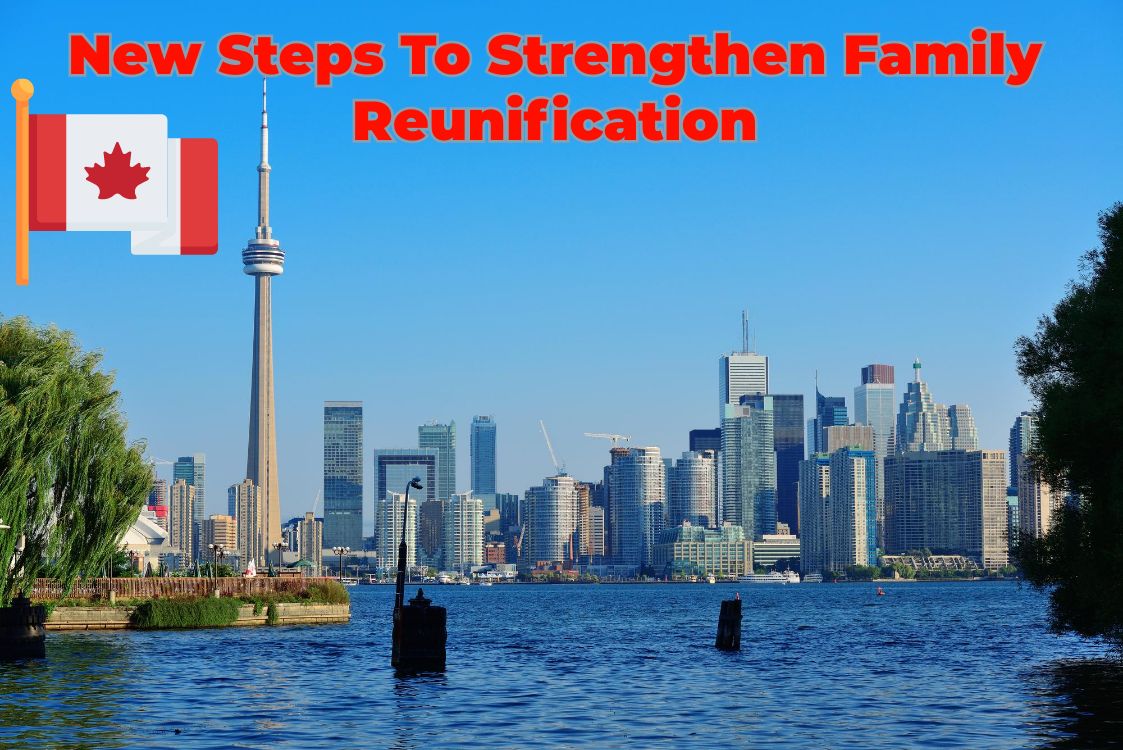
How to extend your stay in Canada after your PGWP Expires
If your Post-Graduation Work Permit (PGWP) has expired and you still want to settle in Canada, there are numerous options with you, which you can consider which may depend on your personal goals and situations.
There are no extensions for your PGWP as it is granted for a single time only. It lasts up to the completion of your study program and the maximum can be valid up to 3 years. So, if you are doing a 3-year degree, then it will last for 3 years.
If you are skilled and have experience working in Canada then you have the option to qualify yourself for the most admired immigration policy known as Express Entry.
So, Humble Immigration is here today to tell you about all the options which you can consider if you want to stay beyond the expiration of your PGWP so that you can take the decision without any confusions according to your choice and preference.
Some cities that make Canada a paradise for immigrants are-
Applying for immigration
Applying for an assured immigration program will make you eligible for a (BOWP) Bridging Open Work Permit, which lets you remain working if your PGWP expires in Canada prior to you acquiring approval for your permanent residence.
Express Entry
Express Entry is actually an Application Management System rather than any immigration program. There are 3 federal immigration programs and some (PNPs) Provincial Nominee Programs that come under the Express Entry
- Federal Skilled Worker Program (FSWP);
- Canadian Experience Class (CEC);
- Feder;l Skilled Trades Program (FSTP);
First make yourself eligible for any of the above 3 programs if you want to immigrate through the Express Entry option. Submit your application form and if get yourself in the pool of candidates. You will get a score which will be based on CRS which is Comprehensive Ranking System.
After you receive your ITA which is your Invitation to Apply and Immigration, Refugees, and Citizenship Canada (IRCC) which you will receive from Canada’s immigration department then only you can apply for immigration.
In a specified Express Entry draw, some specific minimum CRS points are must In order to get an ITA. Every 2 weeks, these draws are held where top scoring candidates are given the invitation to apply for the Canadian Immigration.
Provincial Nominee Program
Most Canadian provinces and territories manage Provincial Nominee Programs (PNPs) except Nunavut and Quebec. There are two large groups of PNPs. Better PNPs seek the Express Entry pool to request candidates to apply for a provincial nomination. Express Entry candidates with a provincial nomination obtain automatic 600 points headed for their general score. This grant pushes them all to the peak of the pool of Express Entry candidates, which makes them to be given an ITA in a succeeding draw.
People who are not eligible for the Express Entry, may be competent to immigrate to Canada all the way through a base PNP. Such programs permit you to submit an application for a provincial nomination straightforwardly to the territory, which then sends that application to the federal government for permanent residence. Some of the bases PNPs are accessible to people whose employment experience does not fall in a “skilled occupation” group.
It is not mandatory for you to have any experience in the provinces or any other job offer to procure PNP but getting these things are generally helpful. Choosing your PNP will determine for what you are qualified and in which province you want to settle.
Quebec immigration

Quebec- the province which has its own immigration system. You require a Quebec Selection Certificate (CSQ), which supports your immigration application to the federal government. Even though Quebec is an autonomous province in expressions of immigration, just the national government can grant permanent residency status.
If you can converse in French, worked and study in Canada (Quebec), you can be qualified for the Quebec Experience Program (PEQ). This is a well-liked choice for the holders of Quebec PGWP. It can be applied as a temporary foreign worker or an international student. International students are required to meet up definite eligibility criteria for their education, show that they mean to inhabit in Quebec and confirm their French language expertise. Workers require a minimum of two years of work experience of full time in a skilled job and have to be working at the time of submission of application. They also require proving their language skill in French.
Atlantic Immigration Pilot
To employ overseas skilled workers, the Atlantic Immigration Pilot Program formulates it easier for Atlantic Canada employers. You are qualified if you are employed in the province of Newfoundland and Labrador, New Brunswick, Prince Edward Island, or Nova Scotia. The three streams that come under this program are:
- Skilled Workers
- Intermediate skilled workers which comprise occupations in skill level “C”
- Graduates of the Atlantic region.
If you can converse in French, worked and study in Quebec, you can be qualified for the Quebec Experience Program (PEQ). This is a well-liked choice for the holders of Quebec PGWP. It can be applied as a temporary foreign worker or an international student. International students are required to meet up definite eligibility criteria for their education, show that they mean to inhabit in Quebec, and confirm their French language expertise. Workers require minimum of two years of work experience of full-time in a skilled job and have to be working at the time of submission of application. They also require proving their language skill in French.
Family sponsorship
If your husband/ wife or common-law partner is a citizen of Canada or a permanent resident, then you may make use of spousal sponsorship. If you submit an application as an internal applicant, you will get an advantage from an open work permit exclusively for common-law partners and spouses of Canadian immigrants who are going through the immigration procedure.
Staying as a temporary resident:
There are more options to extend your settlement in Canada under a diverse work permit.
Work permits can be LMIAs and trade agreements.
To receive a work permit in Canada, the employer frequently requires doing what is known as Labour Market Impact Assessment (LMIA). The procedure is generally extensive and appears with a fee.
Though, there are additional work permit alternatives in the International Mobility Program that smoothens the procedure. The work permits are present to encourage Canada’s wide economic, cultural and social policy objectives. The programs of work permit cover workers who would be present and would append a noteworthy social or cultural advantage to Canada. A few examples include movie and TV staff, entrepreneurs, and self-employed human resources.
Canada too has numerous trade agreements that permit citizens of some countries to do occupation in Canada with no LMIA. The general public of the U.S. and Mexico might meet the criteria for a CUSMA Professionals work permit if they have prearranged service in any of the sixty eligible professions. Canada has agreements of trade under CETA for people of the European Union, and CUKTCA for U.K. citizens.
Also, if are belong to a country that is having a bilateral contract with Canada, you may be competent to reside in Canada on an International Experience Canada (IEC) program.



